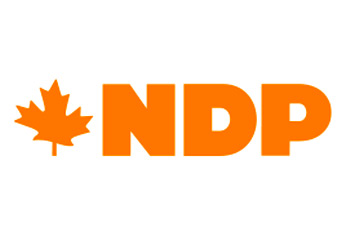If there ever was a good time to be a left-liberal Jew, this isn’t it.
In Israel the right-wing is ascendant. Meanwhile, the global left has degenerated to such extremes that believers in a two-state solution may have trouble finding a political home.
One notable exception to the trend has been Canada’s New Democratic Party, which experienced unprecedented success in the past decade while working to moderate its image. By NDP standards, its current leader, Tom Mulcair, who began his career in the cabinet of Quebec Liberal premier Jean Charest and is suspected of having once considered a job with the Conservatives, is extremely moderate. Indeed, the left-wing of the NDP has always been suspicious of Mulcair, and he has, in some ways, lived up to their suspicions.
At one time, far-left stalwarts such as Svend Robinson and Libby Davies could have been counted on to generate Israel-themed controversy. In 2002, Robinson, then the NDP foreign affairs critic, was removed from the Middle East file after publicly accusing Israel of committing state sponsored terrorism and war crimes. At a 2010 rally, Davies told an interviewer that, in her view, the occupation started not in 1967 but in 1948, the year of Israel’s founding (a view she later retracted). The following year she declined to run for party leadership, citing her inability to speak French.
Mulcair has had no such problems. A fluent French speaker, his 2007 by-election victory in Montreal’s Outremont riding gave the party its first foothold in Quebec. In 2011, its seat count would grow to 59 across the province, rocketing the party for the first time to official opposition status.
READ: AFTER MULCAIR, WHAT’S NEXT FOR THE NDP?
One of the rookie politicians who rode this wave to Ottawa was Tunisian-born Sana Hassainia, who became member of Parliament for Verchères-Les Patriotes. But when Mulcair issued a bland statement to the effect that Israel has a right to defend itself during the 2014 Gaza war, a measure that earned him praise from the mainstream media, Hassainia said she found it “despicable” and resolved to serve out her term as an independent. (Unnamed party sources suggested their true conflict was over a different matter, namely her 8.7 per cent voting attendance record—then the lowest in the House of Commons.)
The NDP’s position in favour of a two-state solution has remained unchanged since former leader Jack Layton’s time. But the past is not a guarantor of the future. The NDP’s performance in the 2015 election was among the strongest in the party’s history, and yet, it was a major setback from the historic heights the party had recently attained.
Mulcair’s tenure as NDP leader is coming to an end. The party will choose a new leader next October. No front-runner has yet emerged, but a webpage has quietly sprung up looking to return the party to its socialist roots. On behalf of a “broad group of activists,” the website calls for Sid Ryan, a labour leader and committed boycott, divestment and sanctions (BDS) campaigner, to be drafted into the leadership contest. The site’s slick appearance gives the impression of an “AstroTurf” campaign, an artificial product designed to appear grassroots. Among the 16 issues discussed on the page, only a single foreign policy item is mentioned. You may not be surprised to learn that it’s about Israel and BDS.
READ: A JEWISH TAKE ON TOM MULCAIR’S DEPARTURE FROM THE NDP
It’s worth taking note when a political party starts to spend too much time wrangling over Israel. Not because Diaspora Jews should anchor their political affiliations based on that one issue – they shouldn’t. But because an obsessive preoccupation with Jews and Israel is a pretty reliable indicator of the health of a political movement. And currently the left is suffering something of a public health crisis.
In the meantime, it’s hard to know what direction the NDP will take next year. The party remains divided. But note how much of a fuss is made over that one foreign policy issue, and you could have a pretty good sense of what’s to come.
David Gruber is a writer and lawyer in Toronto.
